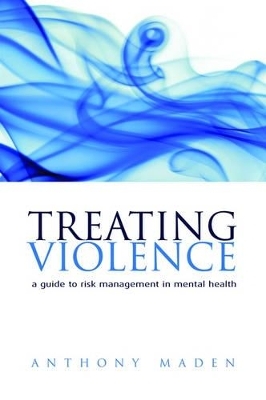
Treating Violence
Oxford University Press (Verlag)
978-0-19-852690-2 (ISBN)
Treating Violence deals with the problem of violence by mental health patients. Over the last twenty years violence by the mentally ill has grown from just a peripheral concern to dominate debate about services. Scientific studies have established beyond reasonable doubt that mental disorders lead to violence in a minority of sufferers, whilst a series of homicide inquiries brought the media spotlight to bear on the real and imagined failings of mental health services. Consequently, health services have had violence risk assessment thrust upon them by worried managers and politicians. Clinicians were bewildered by the growing number of risk scales and they felt vulnerable to criticism when things went wrong. This book provides a way out of the confusion. It summarises the evidence, critically reviews risk assessment methods, and presents a strong case for improving management through structured clinical assessment.
In this provocative and controversial account, standardised risk assessment is discussed in a critical, non-technical way, with a reminder that nobody can predict the future. There is advice for the clinician on when and how to use standardised assessment, along with a strong defence of clinical methods.
Topics include: research on violence, mental health, and risk prediction; the ethics of violence risk assessment; homicide inquiries in the UK, with the results of a new study reviewing their findings; a discussion of professional attitudes towards violence risk; a description of risk assessment tools and recommendations for their use; and a strong defence of structured clinical assessment as the best way of managing risk.
This is a book that should be read by anybody working in front line mental health services or criminal justice. It will also be of interest to those who have read the headlines about mental illness and violence and want to know more about the facts and the controversies that lie behind them.
Trained in psychiatry at the Maudsley Hospital and the Institute of Psychiatry in London before becoming professor of forensic psychiatry at Imperial College in 2000. Clinical director of services for dangerous and severe personality disorder at Broadmoor Hospital. An examiner for Membership of the Royal College of Psychiatrists. Teaches widely on risk management and service development. Gave expert evidence to several homicide inquiries including the Mubarak Inquiry and to the Joint Parliamentary Scrutiny Committee on the new Mental Health Bill.
1. Why worry about violence risk assessment? ; 2. Researching violence risk ; 3. When things go wrong: Homicide Inquiries in the United Kingdom ; 4. Clinical assessment of violence risk ; 5. Standardized or actuarial risk assessment ; 6. Structured clinical assessment of violence risk: the thinking man's approach ; 7. A new look at homicides by the mentally ill: applying structured risk assessment ; 8. Conclusions: on good treatment and bad attitudes
| Erscheint lt. Verlag | 1.3.2007 |
|---|---|
| Zusatzinfo | numerous tables |
| Verlagsort | Oxford |
| Sprache | englisch |
| Maße | 156 x 230 mm |
| Gewicht | 304 g |
| Themenwelt | Geisteswissenschaften ► Psychologie ► Klinische Psychologie |
| Medizin / Pharmazie ► Gesundheitswesen | |
| Medizin / Pharmazie ► Medizinische Fachgebiete ► Psychiatrie / Psychotherapie | |
| Recht / Steuern ► EU / Internationales Recht | |
| Recht / Steuern ► Strafrecht ► Besonderes Strafrecht | |
| Sozialwissenschaften ► Soziologie | |
| ISBN-10 | 0-19-852690-3 / 0198526903 |
| ISBN-13 | 978-0-19-852690-2 / 9780198526902 |
| Zustand | Neuware |
| Haben Sie eine Frage zum Produkt? |
aus dem Bereich


